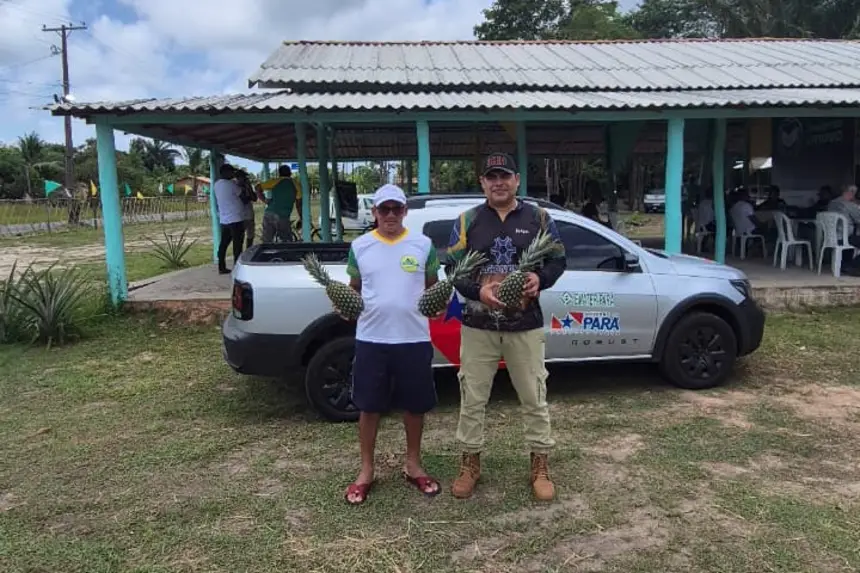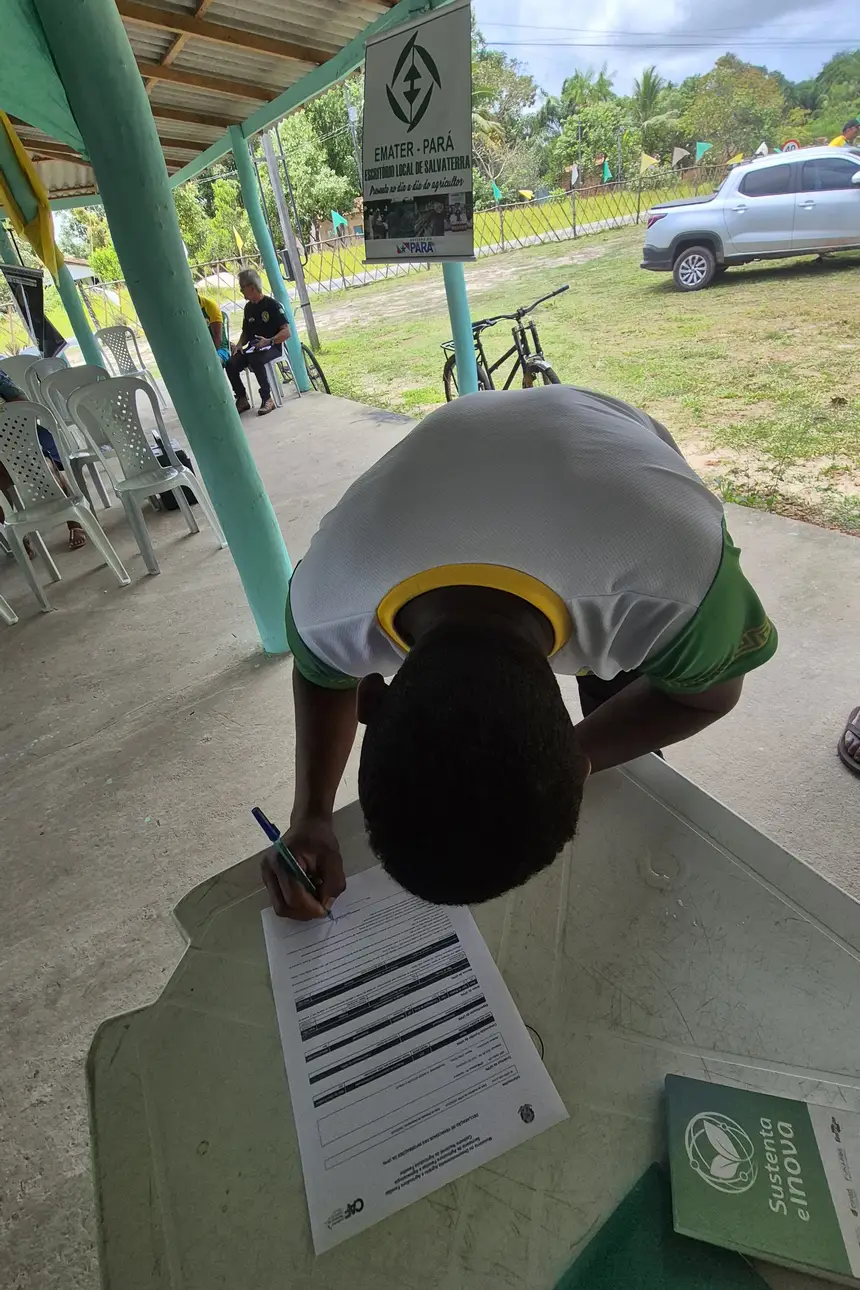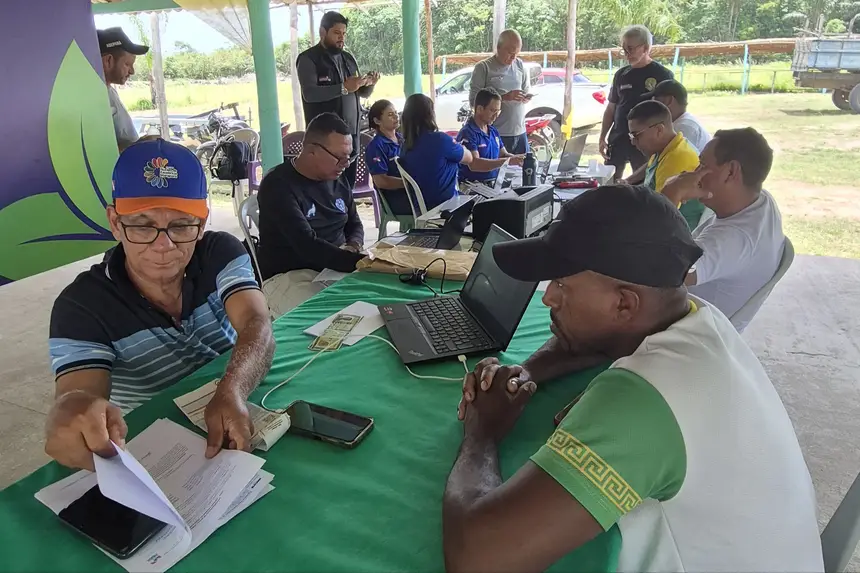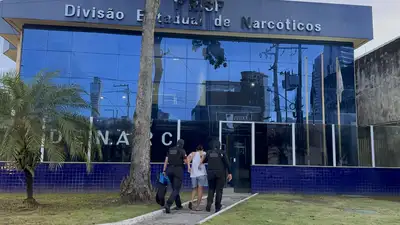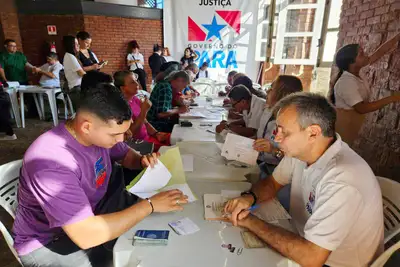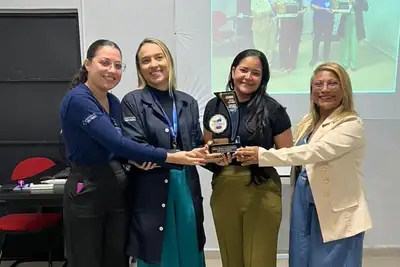Emater holds a registration drive for pineapple producers focusing on Geographical Indication
The initiative is part of the process to obtain the Geographical Indication (GI), a quality seal that adds value to the product and differentiates it in the market
From this Tuesday (9) until Thursday (11), about 150 pineapple-producing families from Salvaterra, in Marajó, are expected to receive the national registration of family agriculture (cafs), as well as their respective properties should be registered in the rural environmental registry (car). This is a drive promoted by the local office of the Technical Assistance and Rural Extension Company of the State of Pará (Emater), in partnership with the Agricultural Defense Agency (Adepará), the city hall of Salvaterra, and the Brazilian Service of Support for Micro and Small Enterprises (Sebrae Pará).
Held at the headquarters of the Family Agriculture Cooperative of Marajó (Coopafam), in the Village of Condeixa, and covering the Agricultural and Artisanal Fishing Cooperative of Monsarás (Coopapam) and the Cooperative of Family Farmers of Salvaterra (Cafas), the service action for farmers and neighbors of Maruacá and Monsarás is a continuation of the multi-institutional process to obtain the Geographical Indication (GI), in the category of Indication of Provenance, for the “pearl” type pineapple from Salvaterra. In Monsarás, another significant activity is the extraction of floodplain açaí.
GI adds quality and reliability to products
The Geographical Indication (GI) is a quality and provenance seal for products or services that have unique qualities due to their geographical origin, such as a specific soil, climate, or production traditions of a region. In Brazil, the GI registration is granted by the National Institute of Industrial Property (INPI), and can take two forms: Indication of Provenance (IP) and Denomination of Origin (DO).
At the beginning of September, the Government of Pará, through Emater, delivered the legal cafs to the three mentioned cooperatives. The expectation of Emater and the other entities is that, by officially registering all individual cooperatives now, the application to the National Institute of Industrial Property (INPI) will be completed this year.
Emater emphasizes that the GI values tradition and territory, adds value to the product and by-products, expands markets, and strengthens the brand.
“Being here is relevant for the communities because it brings together the efforts of the entities involved in structuring the pineapple: public administration, producer organizations. It is another step in organizing the production chain of one of the main products of family agriculture in the region,” points out the head of the local Emater office in Salvaterra, Orlando Lameira, agronomist, specialist in georeferencing of Rural Properties.
The farmer Diel Carvalho, 44, says he is “excited” about the initiative: “Throughout my life, I had never seen an action like this. Wow, it’s a lot of hands-on, it makes things much easier because we can solve and get information about a lot of things all at once,” he details.
On the approximately five hectares of the Sítio Projeto de Deus, in the Village of Condeixa, in addition to pineapple, Carvalho plants açaí, jerimum, cassava, and watermelon.
Text by Aline Miranda


